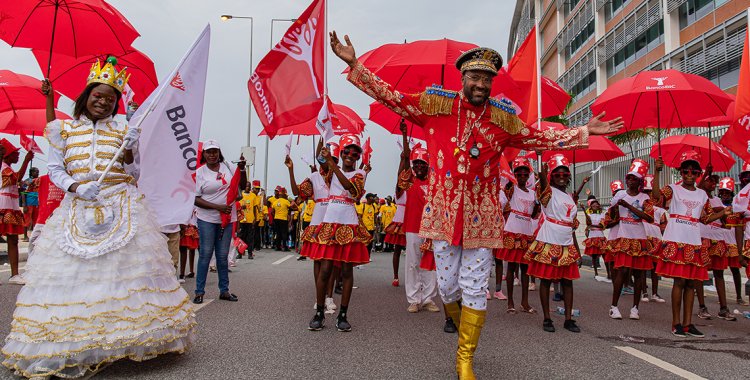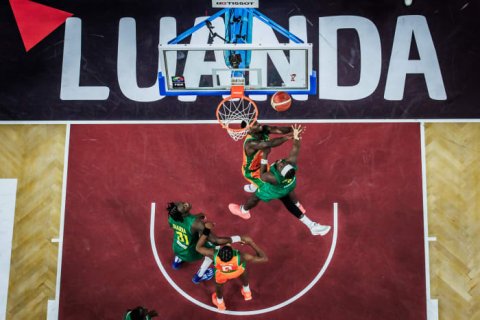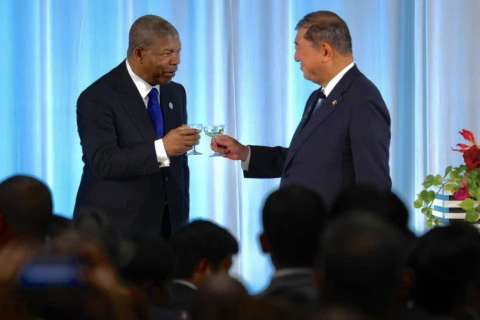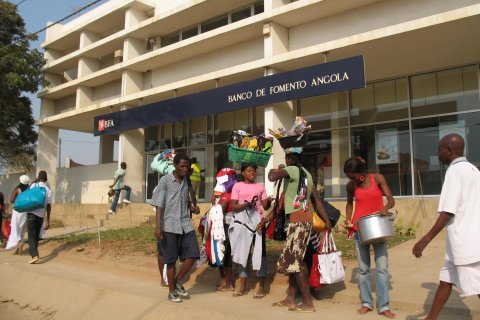This is just one of the traditional songs that will be heard at Nova Marginal de Luanda, as each carnival group will show its own style.
Kazucuta, cabecinha, sambalage or dizanda are some of the dance genres that will be possible to watch, but semba is the one that brings together the largest number of practitioners and is also what will be presented by União Mundo da Ilha, who will defend the title of champion.
Work and dedication are the recipes for success, says the president of the carnival group in the district of Ingombotas, António Custódio.
Founded in 1968, União Mundo da Ilha is also the most awarded among competitors, having already collected 14 trophies, the last of which was won in 2020.
Despite the restrictions of the covid-19 pandemic, they never stood still: "We trained, we rehearsed, there was an out-of-season Carnival and that helped to move a little", reports António Custódio.
But this will be "the real return", he guarantees. "We're going to take everything, we're going to show all our dancing truth, what characterizes us, what makes us go to Marginal, we're going with a purpose that is to dance Carnival".
Winning or losing, he stresses, "is indifferent", because what matters is going "to dance the Carnival", "and "showing what the islanders know how to do, showing our tradition".
With a lack of support, the Union is expected to spend 20 million kwanzas this year on preparing the parade, which not even the three million kwanzas prize – if they manage to win it – makes up for it.
With a permanent deficit, António Custódio dedicates himself to Carnival "for pleasure", but defends more public investment in this festivity, sponsorship of companies and an increase in the value of the prize "to encourage the groups".
Without revealing this year's theme, the plot of União Mundo da Ilha will feature "a little" social criticism, the day-to-day life of Angolans and, as it could not fail to be about the place where many people from Luanda take the opportunity to go to the beach, the sea and the mistreatment he suffers.
And since "nobody takes this the wrong way", what to say "it stays at Carnival", explains the leader of the multi-award winning group from the island of Cabo, better known as the island of Luanda, or simply "the Island".
Opening the parade, the "cursing" wing will try to "scare away all possible evils".
This is followed by "fishwomen", "fishermen", "varinas" and "bessanganas", figures that demonstrate the day-to-day life of the islander and precede the arrival of the "court", followed by the "batuque" formed by percussionists who accompany the parade of the float in a total of 3000 people.
Rehearsing since October, participants usually get together during the week, at night.
They arrive in small groups and begin to line up, following the orders of the "commander" who shouts "varinas" or "fishermen" into the megaphone and arranging the revelers in the appropriate wings.
The columns resound with the carnivalesque rhythm of the music composed by Tonicha Miranda and sung in Kimbundu, without the need to translate African joy into Portuguese.
Following in the footsteps of her father, António Miranda, founder and first president of União, the 34-year-old composer and singer chose a social theme for this year's song: "It's what we experience, it's not scolding, but to suggest, because it is necessary to give an opinion. If we don't have an opinion, it's difficult and while we sing, that's where we go".
The lyrics speak of valuing what is sown, a message that is "directed to everyone", because "everyone enjoys the land".
With the African cloths adjusted to the bodies, they rehearse the steps, animated by the whistle that marks the cadence, "one, two", "one, two", "one, two".
Among the revelers is the young Jesualdo Taveira, "Xinguilador", in his third year of Carnival and participating for the first time in the group of older people.
"Carnival is tradition, it's joy, it's peace, it's harmony, it's good", he replies, when asked why he likes Carnival. Like other young people, most of his family members also "participate" and "they are the ones who encourage them to participate", he enthuses.
Salomão Manuel, in a turban and African costume, has been dancing at União Mundo on the Island for over 15 years, more than half of his life.
He started with the "cassules" (children), moved up to the adults and has assumed the role of "commander" for five years, fulfilling the mission of organizing the group and the dance.
He describes Carnival as "the greatest cultural manifestation", a moment of love, joy and euphoria, and praises União's particularities in the way of dancing and dressing, a group that has been modernizing "without forgetting the past".
Dumay Missete, cultural agent and student of Angolan Carnival, recalls that Brazilian Carnival, especially in Bahia, "is a product of Angola" and invites tourists to also celebrate this tradition.
"First, there is Carnival in Brazil, taking into account the projection of the great industry that it is, but next is Angola", he points out, adding that the objective is also to internationalize the Angolan Carnival, especially in Africa, with greater tourist promotion.
"We had an atypical Carnival in the pandemic phase, two years in a row, but in 2023 Angolans will take to the streets as usual, each in their own way to dance Carnival, manifesting their own culture", in a spontaneous way, he stressed.
"Rain or no rain, we dance Carnival," he continued.
The judges will evaluate several items. Choreography, song, allegory, court, flag, costumes, supporting phalanx, are the categories that will be evaluated, composing the plot of the carnival group, in which the "commander" is one of the main figures.
"If a group does not have the complete plot, then the jury will not be able to give the classification", advanced the expert.
He says that social criticism is "welcome", as long as it is constructive, and highlights aspects such as "day-to-day insults" and neighborhood rivalries, among others that make the Angolan Carnival rich.
"The song is also a message, an appeal to society, to our government entities, this is all part of our cultural mosaic", he said, quoting the poem by Agostinho Neto, the first President of Angola, which said "we have to return to our traditions".
For Dumay Missete, it is important to rescue and bring Carnival back to the limelight, making this culture a testimony "for the next generations to give continuity".
The producer also highlighted that songs like kizomba and semba have spread around the world.
"So whoever wants to dance kizomba, whoever wants to dance semba has to come to Angola (...) let's make the Carnival of Angola a brand in the world", he invited.
The Carnival that returns this year to Nova Marginal will have 44 carnival groups, 16 from the children's class, 15 from the B class and 13 from the A class, according to the Provincial Carnival Association of Luanda (APROCAL).







